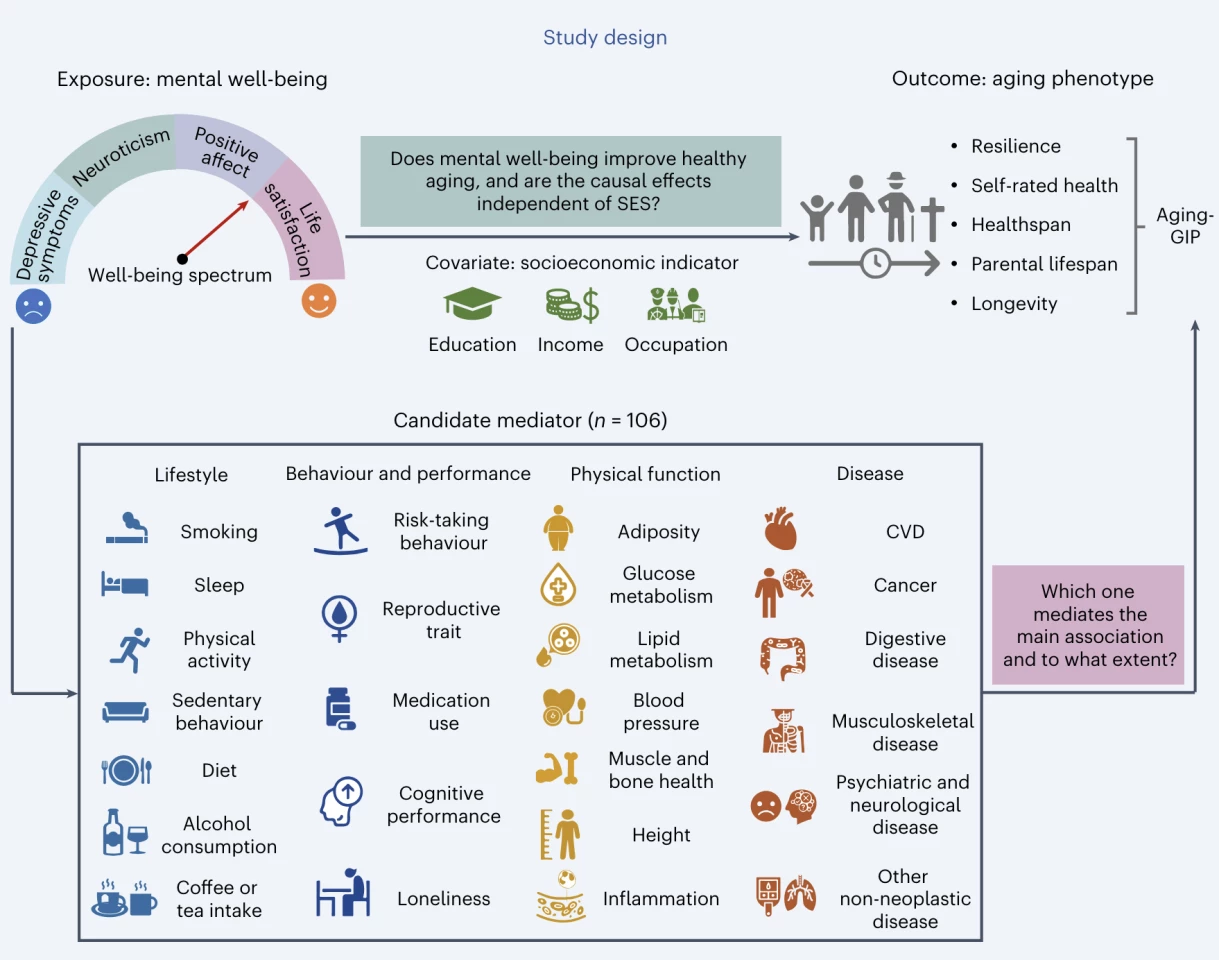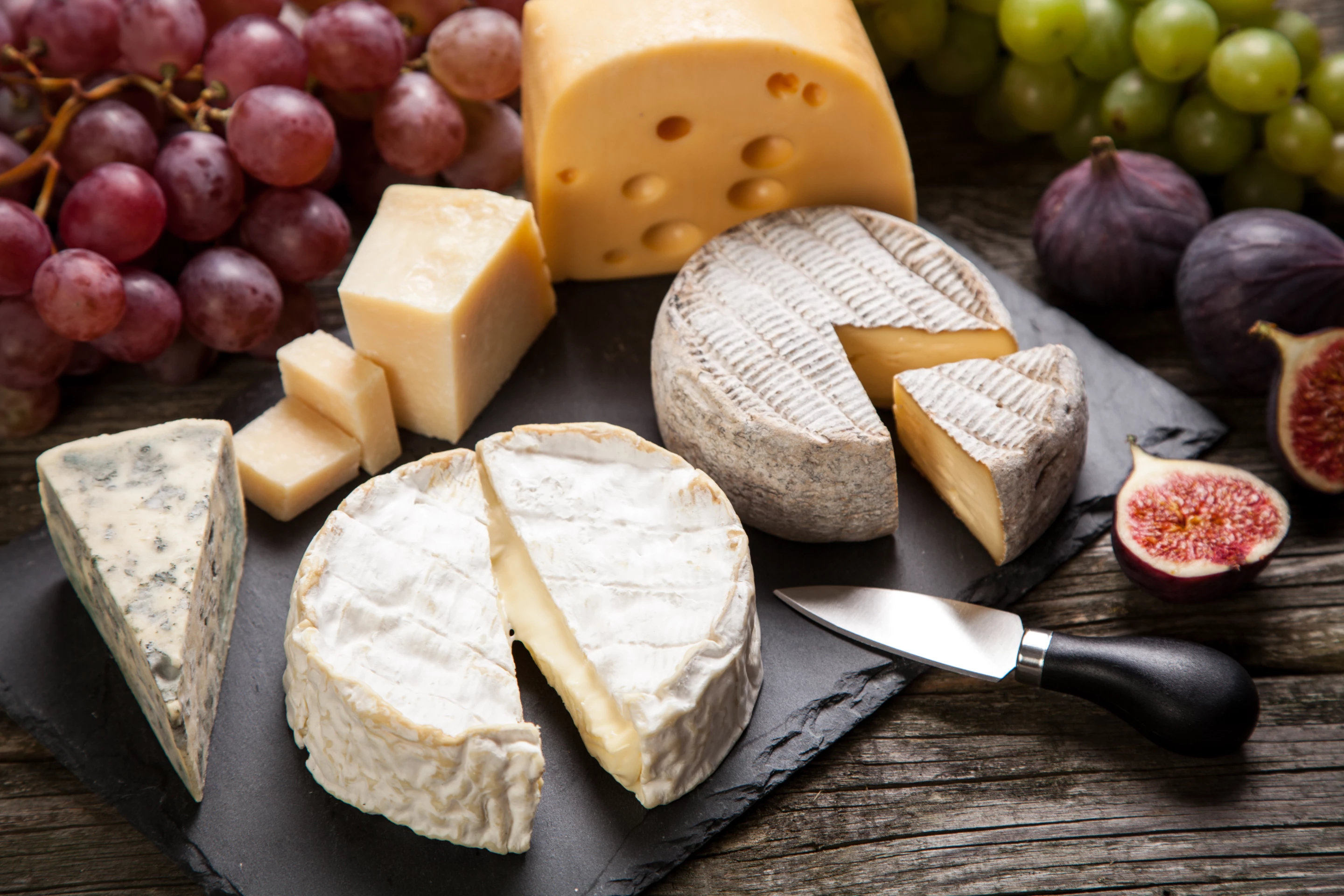A massive study of 2.3 million people has found that, independent of socioeconomic factors, mental well-being may be the most important single aspect to healthy aging and living longer lives. But a surprise finding was that those who reported the best mental health and stress resilience, which boosted well-being, also seemed to eat more cheese.
Yes, cheese – something we've been making around the world and eating for more than 4,000 years, as recorded on the walls of tombs in ancient Egypt. In fact, a few years ago the world's oldest cheese – aged a few centuries beyond palatability – was dug up in the region.
The link between cheese and well-being was an unexpected finding in the study conducted by a team of researchers led by Tian-Ge Wang, out of the Shanghai Jiao Tong University School of Medicine.
"To inform meaningful health policies, we need fine-grained causal evidence on which dimensions of socio-economic status affect longevity and the mediating roles of modifiable factors such as lifestyle and disease," the researchers noted in the paper.
They looked at eight datasets encompassing a total of 2.3 million genetically diverse Europeans, using DNA-driven, two-sample Mendelian randomization to not just link a multitude of factors to healthy aging, but identify stronger, causal impacts. Naturally, it's complicated, because of what we know of how much genetics, lifestyle, wealth and education are inextricably linked to disease, health and lifespan.
In order to extract meaningful data, the team looked at mental well-being on the genetically independent phenotype of aging (aging-GIP) and the five common traits of this robust aging phenotype – resilience, self-rated health, healthspan, parental lifespan and longevity. These results were adjusted to account for socio-economic factors.

What they found was that people with better mental well-being also tended to be healthier as the years went on, scoring much higher in the aging-GIP traits such as resilience, higher self-rated health and longevity. Interestingly, while socioeconomic status has many impacts on how long we live – from being able to access healthcare to having lower work stress and better food and nutrition availability – the results of the study showed well-being and healthy aging was not absolutely determined by how rich or poor someone was.
That said, higher wages, better education and occupation satisfaction all played a part in the big picture of mental health and well-being examined here.
Anyway, back to the cheese. While not directly responsible for happy, healthy aging, a higher intake of cheese (and fruit) was one of the standout contributors in those who had high well-being scores.
A mediation analysis identified 33 factors that mediate "between the well-being spectrum and the aging-GIP" – essentially, statistically, the disease, behaviors and lifestyle choices that significantly reduce the healthy aging score. Key ones included TV watching, smoking, medication use, heart failure, attention-deficit hyperactivity disorder (ADHD), stroke, coronary atherosclerosis and ischemic heart disease.
Cheese, on the other hand, swung the pendulum the other way in both its impact on the well-being spectrum and aging-GIP. One of five key lifestyle mediators the data testing identified, it had a 3.67% positive impact on those healthy aging factors (whereas, for example, higher fruit intake had a 1.96% positive result and too much TV time, an indication of a more sedentary lifestyle, had a 7.39% negative impact on the score for both indicators).
What does this mean overall? Well, much like all these cohort studies, complex interactions make it difficult to extrapolate any single factor to change for certain happy aging. Cheese could be as tied to wealth and social activeness as much as its dietary health benefits. And while a large study, it did solely focus on adults of European descent.
However, if you needed a reason to take another wedge out of the wheel in the refrigerator today, it seems you could be doing worse for your mental well-being and healthy aging.
The study was published in the journal Nature Human Behaviour.
Source: Shanghai Jiao Tong University School of Medicine via Scimex






